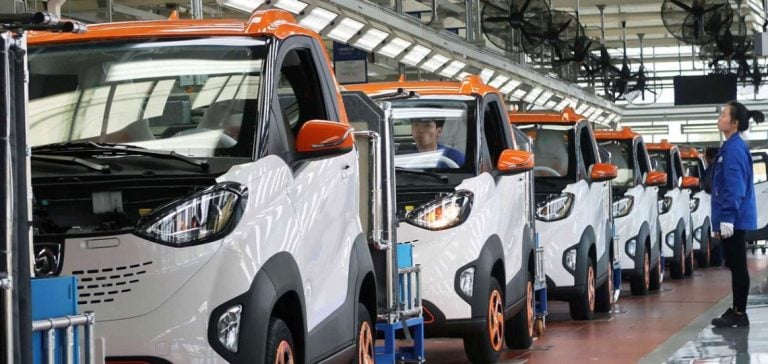The debate surrounding the taxation of Chinese electric cars intensifies, as key players in the European Union and China seek to avoid an escalation of trade tensions.
German Vice-Chancellor Robert Habeck stresses the importance of a negotiated solution to prevent a trade war that could harm both sides.
This statement follows a meeting with China’s Minister of Commerce, Wang Wentao, and comes against a backdrop where Spain recently expressed similar concerns, calling on the EU to reconsider its position on surcharges.
The challenges of taxing electric cars
The European Commission has announced its intention to impose tariffs on electric cars imported from China, a move designed to protect the European automotive industry.
The move is prompted by accusations that Beijing subsidizes its manufacturers, enabling them to offer lower prices on the European market.
The EU, which employs 14.6 million people in the sector, seeks to maintain fair competition while supporting its own manufacturers.
However, the decision has provoked mixed reactions among member states, with some calling for restraint due to their economic ties with China.
Tensions have intensified with Beijing’s response, which has launched an anti-dumping investigation into pork imports from the EU, targeting Spain in particular, the main European exporter of this product to China.
This escalation of protectionist measures could have significant repercussions on trade relations between Europe and China, two major economic partners.
Divisions within the EU
EU member states have divergent positions on the issue of surcharges.
While France supports targeted measures against Chinese vehicles, countries such as Germany, Sweden and Hungary advocate a more measured approach, given their close ties with the Chinese automotive sector.
This division complicates decision-making in the European Council, where a qualified majority is needed to block the Commission’s proposal.
Opponents of the surcharges need to bring together 15 states representing 65% of the EU’s population, a considerable challenge in the current context.
The German government itself is facing internal tensions, with disagreements between the different parties in the ruling coalition.
The Greens, Liberals and Social Democrats are expressing varying opinions on how to handle this delicate situation.
The German automotive industry, which plays a central role in the country’s economy, fears the consequences of a trade conflict, especially in an already difficult economic environment.
Implications for the automotive industry
The German automotive industry, which relies heavily on the Chinese market, is particularly vulnerable to an escalation in trade tensions.
Robert Habeck underlined the importance of China for the German economy, stating that “China is of great importance for the German and European economy – conversely, China also has a great interest in trading with us”.
This interconnection underlines the need for constructive dialogue to avoid measures that could harm the growth of both economies.
German carmakers, such as Volkswagen, which is Germany’s largest industrial employer, are already considering austerity measures, including plant closures and layoffs, to cope with economic pressure.
The current situation highlights the challenges facing the industry, including the need to adapt to a rapidly evolving market dominated by electric vehicles.
Towards a negotiated resolution
As discussions continue, the need for a collaborative approach is becoming increasingly apparent.
Economic players on both sides need to work together to establish a level playing field.
Germany’s position, which advocates fair competition without resorting to protectionist measures, could serve as a model for other EU countries.
Striking a balance between protecting local industry and opening up to international trade is essential to ensure sustainable trade relations.
The next few weeks will be crucial, as EU member states prepare to vote on the proposed tariffs.
The outcome of this vote could have lasting implications for the European automotive industry and its relations with China.
The need for constructive dialogue and international cooperation is more pressing than ever, as both sides seek to navigate a complex and ever-changing trade landscape.






















